Shipping goods from China to Japan presents a unique set of challenges and opportunities for importers. As one of the busiest trade routes in Asia, understanding the available shipping options is essential for optimizing logistics and ensuring timely delivery. Whether you are looking for the fastest means of transport or the most cost-effective solutions, navigating through various shipping methods, such as air freight, sea freight, and express services, can significantly influence your overall success. This comprehensive guide delves into the key shipping options, essential factors to consider when selecting a shipping company, and tips for negotiating the best rates, enabling you to make informed decisions that will enhance your import experience.
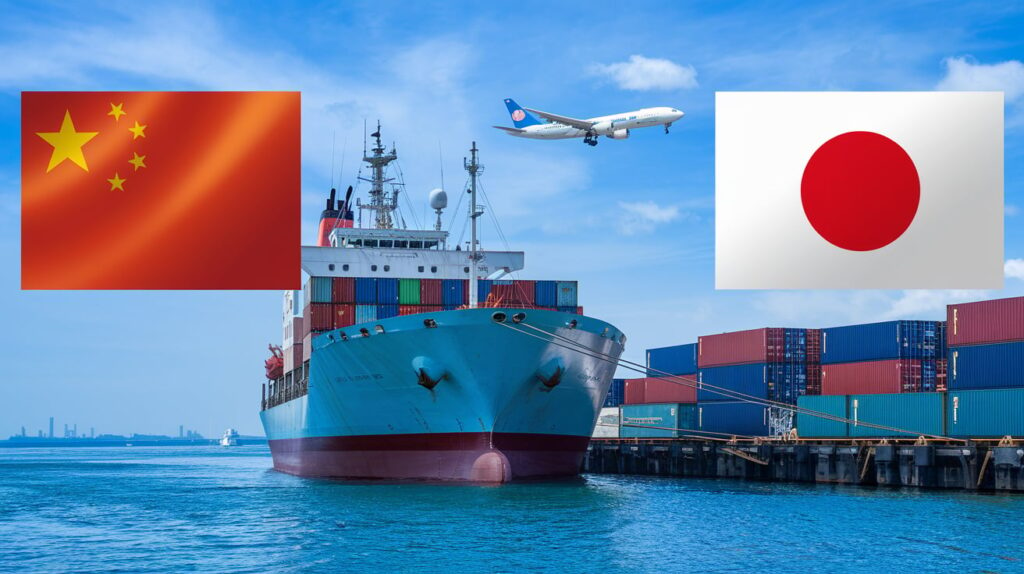
Overview of Shipping Options from China to Japan
Air Freight vs Sea Freight
When transporting goods from China to Japan, two primary methods dominate: air freight and sea freight. Each option offers distinct advantages and disadvantages, making it essential to assess your specific shipping needs.
| Shipping Method | Key Features | Advantages | Disadvantages |
|---|---|---|---|
| Air Freight | Ideal for urgent or high-value goods. | – Faster delivery times, often within 1-3 days. – Less risk of damage due to shorter transit. | – Higher costs, generally 4-10 times more expensive than sea freight. – Limited cargo capacity. |
| Sea Freight | Best suited for large volumes or bulky items. | – More cost-effective for large shipments. – Higher cargo capacity with standard containers. | – Longer transit times, typically 7-30 days. – Greater risk of damage from exposure to elements. |
Express Delivery Services
Express delivery services offer a hybrid solution, combining speed and convenience. Through partnerships with logistics giants, express services provide expedited shipping for smaller packages. This option is ideal for businesses needing immediate restocking or time-sensitive shipments.
- Key Benefits:
- Overnight or 1-2 day delivery options.
- Comprehensive tracking capabilities.
- Door-to-door service, minimizing handling and processing time.
Door-to-Door Shipping
Door-to-door shipping services provide a seamless experience for importers. This service handles the entire logistics chain—from pick-up at the supplier’s location in China to delivery at the destination in Japan. It includes customs clearance, documentation, and any necessary insurance.
- Advantages:
- Simplifies the shipping process for importers.
- Reduces the need for extensive knowledge of logistics or customs procedures.
- Flexible service options, including both air and sea freight.
Factors to Consider When Choosing a Shipping Company
Selecting a reliable shipping company is vital for successful importing. Below are critical factors that should influence your decision:
Shipping Costs and Rates
Understanding the total cost of shipping is paramount. Rates can vary significantly based on the chosen method, weight, volume, and any additional services required. Importers should always obtain quotes from several freight forwarders to ensure competitive pricing.
- Cost Variability:
- For air freight, costs can be influenced by fuel surcharges and peak season demand.
- Sea freight rates can fluctuate due to container availability and shipping line tariffs.
Transit Times
Transit times vary by shipping method and can impact inventory management and customer satisfaction. Air freight typically offers the fastest transit times, while sea freight may require careful planning to account for longer shipping periods.
- Expected Transit Times:
- Air Freight: 1-3 days.
- Sea Freight: 7-30 days, depending on the shipping route and port congestion.
Reliability and On-time Delivery
A shipping company’s reliability directly affects your business’s reputation. Look for freight forwarders with a proven track record of on-time deliveries and positive customer testimonials.
- Assessment Criteria:
- Delivery performance metrics.
- Industry reviews and ratings.
- Historical data on shipment delays or disruptions.
Insurance and Damage Protection
Insurance is a critical component of international shipping, safeguarding your investment against loss or damage during transit. Many reputable shipping companies offer different levels of insurance coverage.
- Options to Consider:
- Full coverage for high-value goods.
- Basic coverage for lower-value shipments.
- Third-party insurance policies for added protection.
Customer Service and Support
Effective customer service is crucial for addressing concerns and navigating challenges in the shipping process. A shipping company should offer responsive, knowledgeable support to assist you throughout the journey.
- Key Aspects:
- Availability of a dedicated account manager.
- Clear communication channels for updates and inquiries.
- Support during customs clearance and documentation processes.
Navigating the complexities of shipping from China to Japan can be daunting, but by understanding the available options and factors to consider, importers can make informed decisions that benefit their business. For comprehensive solutions, consider partnering with Dantful International Logistics, a trusted provider known for its highly professional, cost-effective, and high-quality international logistics services.
You may be interested in the following related articles:
- Shipping From China To Vietnam
- Shipping From China To Thailand
- Shipping From China To South Korea
- Shipping From China To Philipines
- Shipping From China To Pakistan
- Shipping From China To Indonesia
- Shipping From China To Singapore
- Shipping From China To Malaysia
- Shipping From China to ASIA
Top International Freight Forwarders for China to Japan Shipping
DHL
DHL is a global leader in the logistics industry, known for its comprehensive and reliable shipping solutions. With a strong presence in both China and Japan, DHL offers various shipping options, including express and freight services. Their extensive network and advanced tracking systems allow customers to monitor their shipments in real-time.
- Key Services:
- International express shipping.
- Customs clearance services.
- Door-to-door delivery options.
FedEx
FedEx is renowned for its commitment to fast, reliable deliveries. Their air freight services are particularly appealing for time-sensitive shipments, making them a popular choice for businesses importing from China to Japan. FedEx also provides specialized services for heavy or oversized items.
- Key Services:
- FedEx International Priority for urgent deliveries.
- Customs brokerage expertise.
- Comprehensive tracking capabilities.
UPS
UPS has a robust logistics network and is recognized for its efficiency and wide range of shipping options. They offer both air and ocean freight solutions, allowing businesses to choose the best method based on their specific needs. UPS also provides a wealth of resources for customs clearance and regulatory compliance.
- Key Services:
- UPS Worldwide Express for urgent needs.
- Ocean freight solutions for cost-effective shipping.
- Advanced technology for shipment tracking.
Aramex
Aramex is a leading global provider of logistics and transportation services, particularly in the Middle East and Asia. They offer a variety of international shipping solutions, including air, sea, and land freight. Aramex is known for its customer-centric approach and ability to tailor services to meet individual business requirements.
- Key Services:
- Customized shipping solutions for various industries.
- E-commerce logistics support.
- Efficient customs clearance assistance.
DB Schenker
DB Schenker stands out as a global logistics leader with a strong focus on sustainability and innovation. They provide extensive freight forwarding services, including air and sea shipping, with an emphasis on creating efficient supply chains. Their dedicated teams specialize in customs clearance and compliance, ensuring smooth transactions.
- Key Services:
- Integrated logistics solutions combining air and sea freight.
- Advanced tracking and reporting tools.
- Expertise in various industries, including automotive and pharmaceuticals.
Advantages of Using an International Freight Forwarder
Partnering with an international freight forwarder can significantly streamline the shipping process and offer numerous benefits. Here are some advantages to consider:
Expertise in International Shipping Regulations
Freight forwarders possess extensive knowledge of international shipping regulations and compliance requirements. This expertise helps businesses navigate the complexities of customs laws, import/export regulations, and documentation needs, ensuring that shipments are processed smoothly and without delays.
- Regulatory Knowledge: Freight forwarders stay updated on changes in regulations, ensuring compliance and minimizing risks associated with fines or penalties.
Customs Clearance Assistance
Customs clearance can be a daunting task for businesses unfamiliar with the documentation and procedures involved. Freight forwarders provide invaluable assistance in preparing and submitting the necessary paperwork to customs authorities, helping to eliminate bottlenecks and prevent delays.
- Streamlined Process: With their experience, freight forwarders facilitate quicker customs clearance, providing peace of mind for importers.
Tracking and Status Updates
Most freight forwarders offer advanced tracking systems that allow shippers to monitor their shipments in real-time. This transparency provides valuable insights into the shipping process, enabling businesses to plan accordingly and keep their stakeholders informed.
- Improved Accountability: Timely updates help manage expectations and enhance communication with customers regarding delivery schedules.
Single Point of Contact
Working with a freight forwarder consolidates various logistical responsibilities under a single point of contact. This simplifies communication and coordination, allowing businesses to focus on their core operations rather than managing multiple logistics providers.
- Efficiency: A dedicated account manager can streamline operations, address concerns promptly, and provide tailored solutions based on the business’s unique shipping needs.
Opting for an international freight forwarder not only facilitates smoother shipping processes but also enhances operational efficiency, enabling businesses to thrive in a competitive global market.
Local Chinese Shipping Companies for Japan
Lower Costs than International Providers
Local Chinese shipping companies often provide lower shipping costs compared to international freight forwarders. This cost-effectiveness stems from several factors:
- Reduced Overhead: Local providers typically have lower operational costs, allowing them to offer competitive rates.
- Fewer Intermediaries: Engaging directly with Chinese shipping companies can eliminate the intermediary fees associated with international freight forwarders.
- Customized Solutions: Many local shipping companies offer flexible pricing structures tailored to specific shipment needs, helping businesses save money on logistics.
| Shipping Provider | Average Cost (USD) | Service Type |
|---|---|---|
| Local Chinese Company A | $500 | Sea Freight |
| Local Chinese Company B | $600 | Air Freight |
| Local Chinese Company C | $450 | Express Delivery |
Chinese Language Support
For businesses that primarily communicate in Chinese, local shipping companies can provide significant language advantages. Their staff is proficient in Mandarin and other local dialects, which can streamline communication and reduce misunderstandings.
- Effective Communication: Local companies can directly address inquiries, requirements, and concerns in the native language, facilitating smoother interactions.
- Cultural Understanding: Local providers are more familiar with regional business practices and nuances, further enhancing collaboration and understanding.
Knowledge of Local Shipping Conditions
Local Chinese shipping companies possess extensive knowledge of domestic shipping regulations, traffic conditions, and logistical challenges that can arise in the transportation process.
- Tailored Solutions: They can develop effective shipping strategies based on an understanding of local infrastructure, customs procedures, and seasonal conditions that might affect transit times.
- Problem-Solving Capabilities: Their familiarity with local conditions allows them to quickly adapt to any potential issues that may arise during transportation, minimizing disruptions to the supply chain.
Incoterms for China to Japan Shipping
EXW (Ex Works)
- Definition: Under EXW, the seller makes the goods available at their premises or another named place. The buyer assumes all risk and costs associated with transport, including loading and customs clearance.
- Usage: This term is often used when the buyer has more experience in managing logistics and prefers to control the entire shipping process.
FCA (Free Carrier)
- Definition: The seller is responsible for delivering the goods to a carrier or another person nominated by the buyer at a specified location. Responsibility shifts to the buyer once the goods are delivered to the carrier.
- Usage: FCA is beneficial when the buyer wants flexibility in choosing their carrier while still sharing some responsibilities with the seller.
CPT (Carriage Paid To)
- Definition: The seller pays for the transportation of the goods to a specified destination. However, the risk transfers to the buyer once the goods are handed over to the carrier.
- Usage: CPT is useful for sellers who want to manage logistics while allowing buyers to assume responsibility during transit.
CIP (Carriage and Insurance Paid To)
- Definition: Similar to CPT, with the addition that the seller must also procure insurance for the goods while in transit. The seller is responsible for the cost of transportation and insurance, with the risk passing to the buyer once the goods are handed over to the carrier.
- Usage: CIP provides additional protection to buyers, making it an attractive option for high-value shipments that require insurance coverage during transit.
Understanding the appropriate Incoterms is crucial for establishing clear agreements between parties involved in shipping. By selecting the right terms, businesses can clarify responsibilities, mitigate risks, and streamline the logistics process from China to Japan.
Tips for Negotiating the Best Shipping Rates
Get Quotes from Multiple Providers
Obtaining quotes from various shipping providers is a fundamental step in the negotiation process.
- Comparison Shopping: Request quotes from multiple freight forwarders to compare prices and service offerings. This allows you to identify the most competitive rates available in the market.
- Leverage Competition: Use the quotes received as leverage during negotiations. Sharing competing offers can encourage providers to lower their prices or enhance their service packages to win your business.
Provide Accurate Dimensions and Weights
Ensuring that you provide precise shipment details can significantly impact the rates you receive.
- Dimensional Weight Pricing: Many carriers use dimensional weight pricing, where both the volume and weight of the shipment are considered. Providing accurate dimensions and actual weights helps prevent unexpected charges.
- Avoiding Additional Fees: Accurate information minimizes the risk of additional fees due to incorrect weight or dimensions being reported after the shipment is booked.
Consider Shipping in Off-Peak Seasons
Shipping during off-peak seasons can lead to cost savings and increased availability of shipping resources.
- Reduced Rates: Carriers often offer lower rates during periods of decreased demand, such as after major holidays or during slower business months. Aligning your shipping schedule with these periods can lead to substantial savings.
- Enhanced Capacity: With fewer shipments during off-peak seasons, shippers typically experience better service and increased availability of containers or aircraft, reducing the chances of delays.
Consolidate Shipments When Possible
Combining shipments can optimize shipping costs and improve efficiency.
- Shared Container Space: Consolidating multiple orders into a single shipment allows you to share the costs of shipping space, which can significantly lower per-unit shipping rates.
- Reduced Handling Fees: Fewer shipments mean fewer handling fees and customs processing costs, streamlining logistics and reducing overall expenses.
Importance of Tracking and Insurance
Real-Time Shipment Tracking
Implementing a shipment tracking system is crucial for maintaining transparency throughout the shipping process.
- Enhanced Visibility: Real-time tracking allows businesses to monitor their shipments’ locations and statuses at all times, reducing anxiety and improving supply chain management.
- Proactive Management: Access to tracking information enables businesses to respond quickly to any delays or issues that may arise during transit, ensuring timely communication with customers and stakeholders.
Cargo Insurance Options
Investing in cargo insurance is an essential aspect of reducing financial risk associated with international shipping.
- Protection Against Loss or Damage: Insurance provides coverage for goods lost, stolen, or damaged during transit, protecting the financial investment made in inventory.
- Flexible Coverage Options: Various types of cargo insurance policies are available, allowing businesses to choose coverage that aligns with the value of the goods being shipped and their risk tolerance.
Damage Claims Process
In the event of loss or damage, understanding the claims process is critical for effectively addressing issues.
- Clarity on Procedures: Familiarize yourself with the steps required to file a claim with your shipping provider or insurance company, including documentation needed and time limits for submission.
- Detailed Records: Keeping thorough records of all shipments, including photographs of goods before shipping, packing lists, and any communication with carriers, can facilitate a smoother claims process and expedite reimbursement.
By implementing these strategies and understanding the importance of tracking and insurance, businesses can enhance their shipping processes, reduce costs, and protect their investments when importing from China to Japan.
FAQs
1. What are the main shipping options available from China to Japan?
The primary shipping methods for transporting goods from China to Japan are air freight and sea freight. Air freight is ideal for urgent shipments, offering faster delivery times (1-3 days) but at higher costs. Sea freight is more cost-effective for larger volumes but takes longer (7-30 days) for delivery.
2. What is door-to-door shipping?
Door-to-door shipping is a service where the logistics provider manages the entire process from pick-up at the supplier’s location in China to delivery at the destination in Japan. This includes customs clearance, documentation, and any necessary insurance, simplifying the shipping process for importers.
3. How can I select a reliable shipping company?
When choosing a shipping company, consider factors such as shipping costs, transit times, reliability (on-time delivery), insurance options, and customer service support. Obtaining quotes from multiple freight forwarders can assist in making competitive comparisons.
4. What are the typical costs associated with shipping from China to Japan?
Shipping costs vary significantly based on the chosen method (air or sea), the weight and volume of the shipment, and any additional services required. For reference, average costs can range from $450 to $600 for local Chinese shipping providers depending on the service type.
5. What are Incoterms, and why are they important?
Incoterms (International Commercial Terms) are standardized trade terms that define the responsibilities and liabilities of buyers and sellers during international shipping. Understanding Incoterms helps clarify responsibilities regarding shipping costs, risk, and customs clearance, facilitating smoother agreements.
6. How can I negotiate better shipping rates?
To negotiate favorable shipping rates, obtain quotes from multiple providers, provide accurate shipment dimensions and weights, consider shipping during off-peak seasons, and consolidate shipments when possible to share costs.
7. Why is tracking and insurance important when shipping?
Real-time shipment tracking provides visibility into shipment status and location, helping businesses manage expectations and respond to delays. Cargo insurance is essential for protecting against potential loss or damage during transit, ensuring financial security for businesses.

Young Chiu is a seasoned logistics expert with over 15 years of experience in international freight forwarding and supply chain management. As CEO of Dantful International Logistics, Young is dedicated to providing valuable insights and practical advice to businesses navigating the complexities of global shipping.



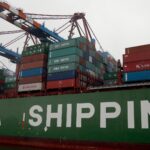



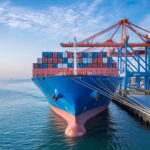


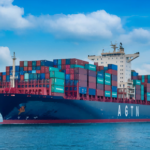
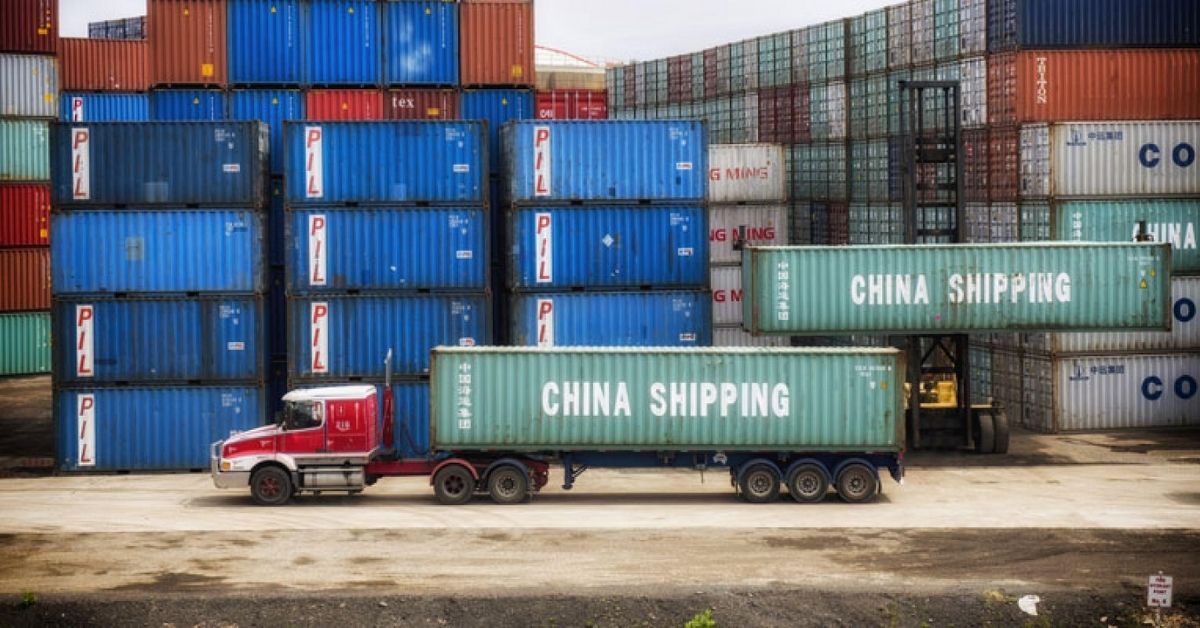
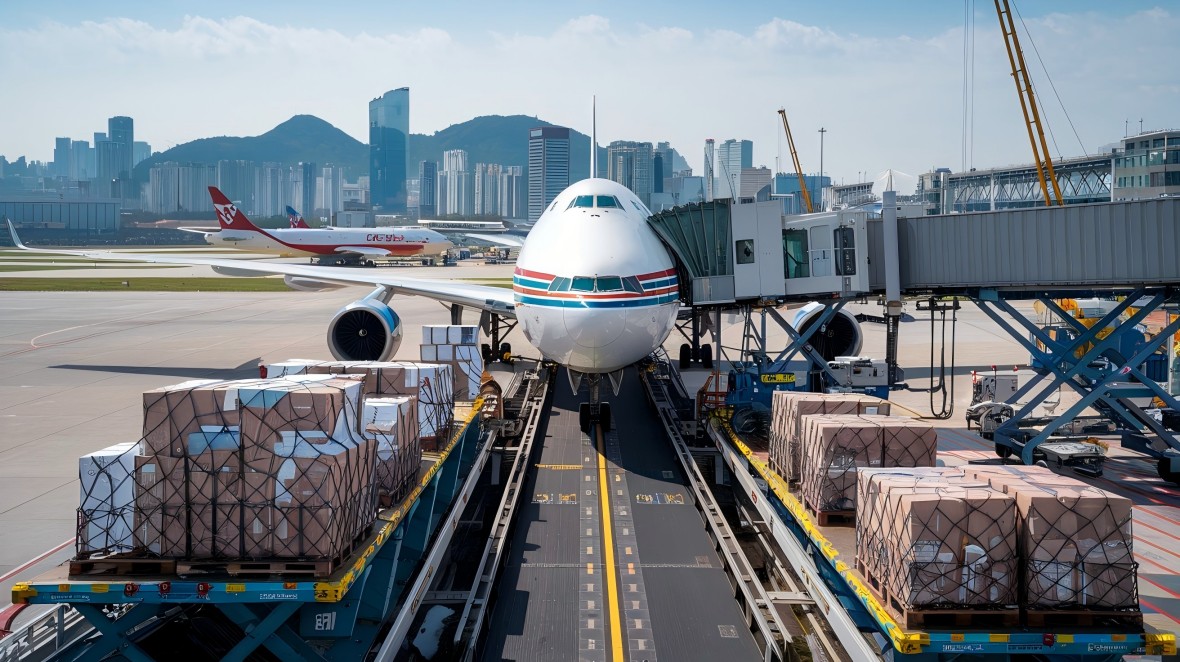
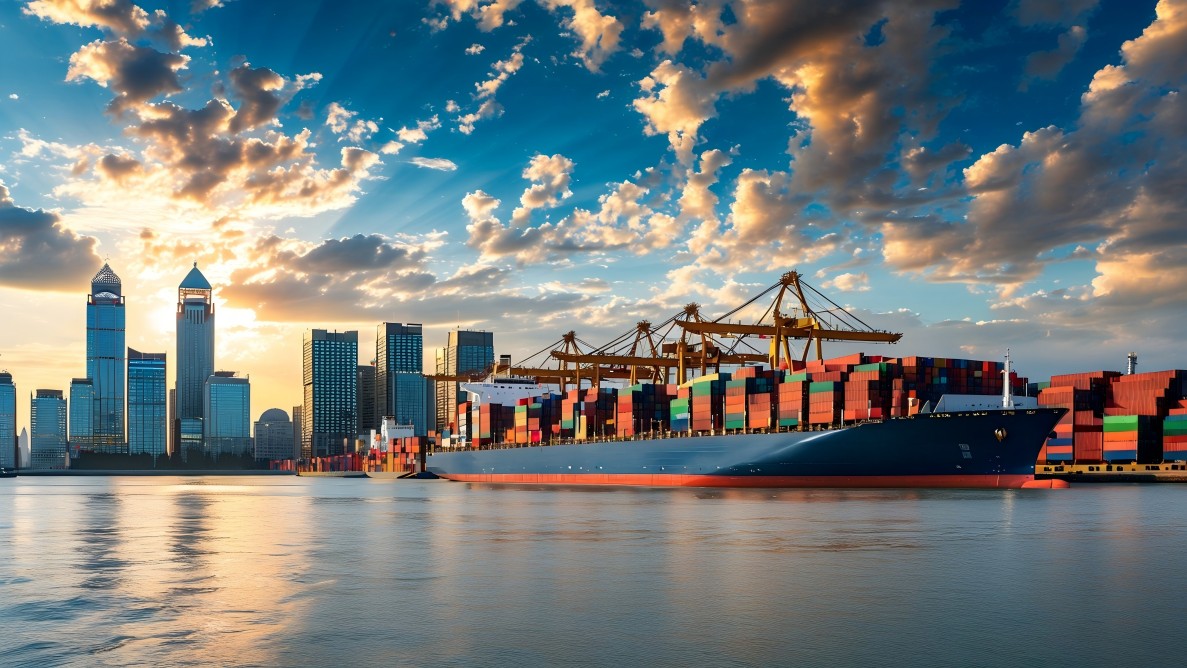
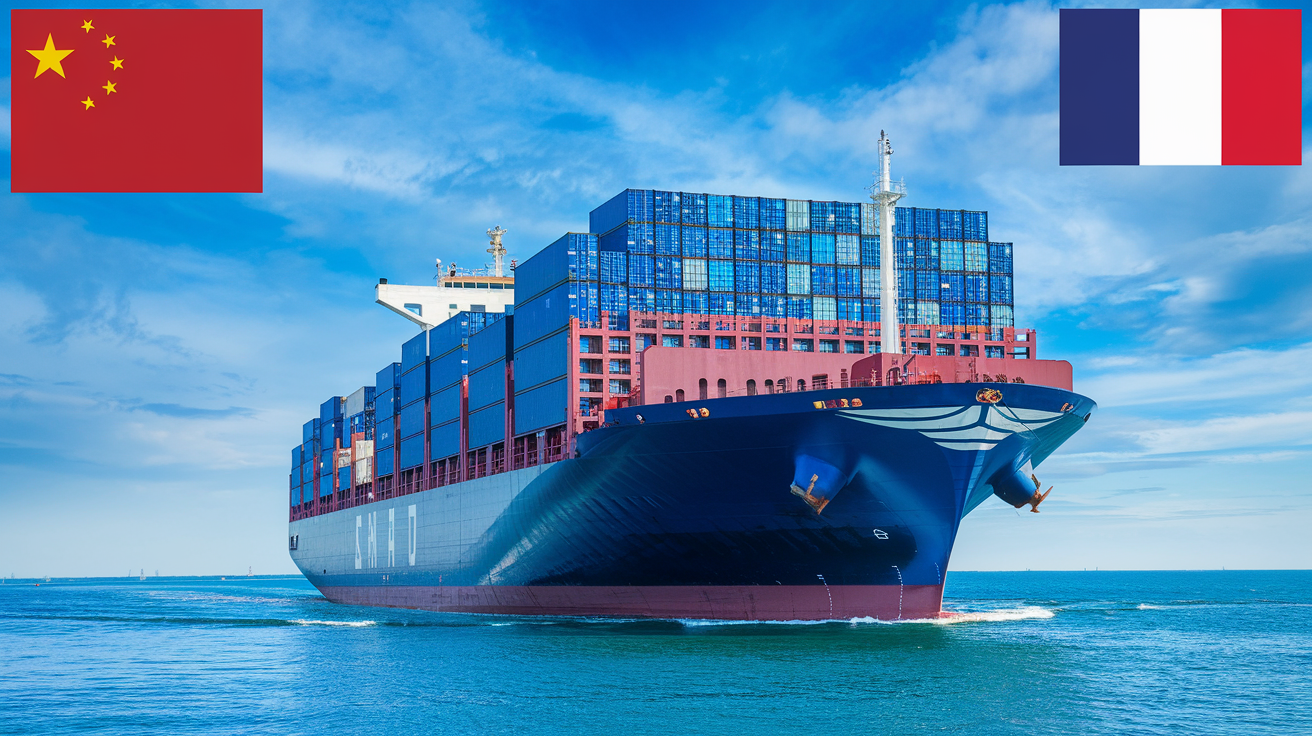






 Afrikaans
Afrikaans Shqip
Shqip አማርኛ
አማርኛ العربية
العربية Հայերեն
Հայերեն Azərbaycan dili
Azərbaycan dili Euskara
Euskara Беларуская мова
Беларуская мова বাংলা
বাংলা Bosanski
Bosanski Български
Български Català
Català Cebuano
Cebuano Chichewa
Chichewa 简体中文
简体中文 繁體中文
繁體中文 Corsu
Corsu Hrvatski
Hrvatski Čeština
Čeština Dansk
Dansk Nederlands
Nederlands English
English Esperanto
Esperanto Eesti
Eesti Filipino
Filipino Suomi
Suomi Français
Français Galego
Galego ქართული
ქართული Deutsch
Deutsch Ελληνικά
Ελληνικά Kreyol ayisyen
Kreyol ayisyen Harshen Hausa
Harshen Hausa Ōlelo Hawaiʻi
Ōlelo Hawaiʻi עִבְרִית
עִבְרִית हिन्दी
हिन्दी Hmong
Hmong Magyar
Magyar Íslenska
Íslenska Igbo
Igbo Bahasa Indonesia
Bahasa Indonesia Gaeilge
Gaeilge Italiano
Italiano 日本語
日本語 Basa Jawa
Basa Jawa ಕನ್ನಡ
ಕನ್ನಡ Қазақ тілі
Қазақ тілі ភាសាខ្មែរ
ភាសាខ្មែរ 한국어
한국어 كوردی
كوردی Кыргызча
Кыргызча ພາສາລາວ
ພາສາລາວ Latin
Latin Latviešu valoda
Latviešu valoda Lietuvių kalba
Lietuvių kalba Lëtzebuergesch
Lëtzebuergesch Македонски јазик
Македонски јазик Malagasy
Malagasy Bahasa Melayu
Bahasa Melayu മലയാളം
മലയാളം Maltese
Maltese Te Reo Māori
Te Reo Māori मराठी
मराठी Монгол
Монгол ဗမာစာ
ဗမာစာ नेपाली
नेपाली Norsk bokmål
Norsk bokmål پښتو
پښتو فارسی
فارسی Polski
Polski Português
Português ਪੰਜਾਬੀ
ਪੰਜਾਬੀ Română
Română Русский
Русский Samoan
Samoan Gàidhlig
Gàidhlig Српски језик
Српски језик Sesotho
Sesotho Shona
Shona سنڌي
سنڌي සිංහල
සිංහල Slovenčina
Slovenčina Slovenščina
Slovenščina Afsoomaali
Afsoomaali Español
Español Basa Sunda
Basa Sunda Kiswahili
Kiswahili Svenska
Svenska Тоҷикӣ
Тоҷикӣ தமிழ்
தமிழ் తెలుగు
తెలుగు ไทย
ไทย Türkçe
Türkçe Українська
Українська اردو
اردو O‘zbekcha
O‘zbekcha Tiếng Việt
Tiếng Việt Cymraeg
Cymraeg יידיש
יידיש Yorùbá
Yorùbá Zulu
Zulu